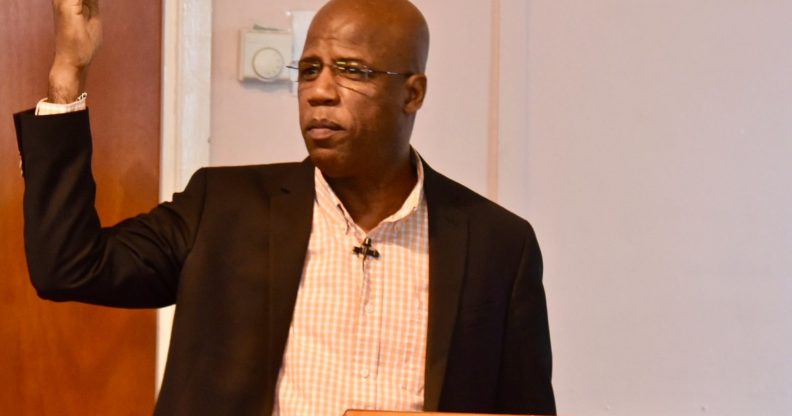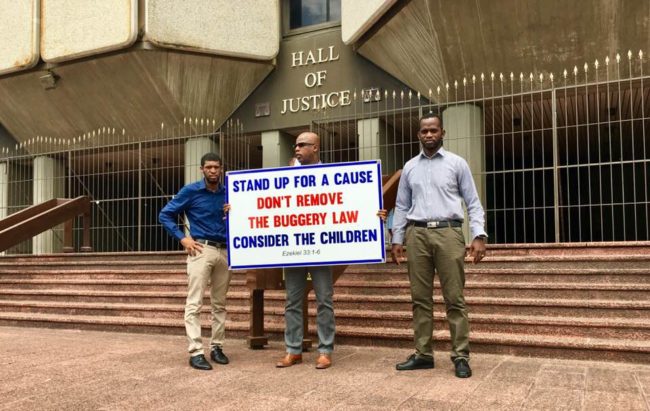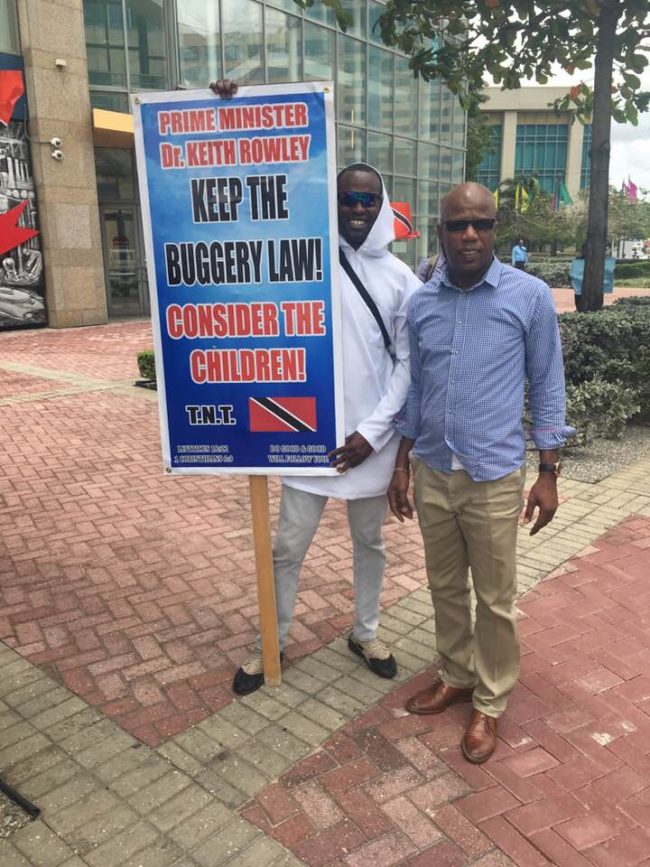Bishop calls for gay people to be jailed in interview on BBC’s Today programme

A bishop who has resisted the legalisation of homosexuality in Trinidad and Tobago appeared to defend jailing gay people in an interview on the BBC’s Today programme.
A court ruling in Trinidad and Tobago earlier this month struck down a British Colonial-era law that criminalised gay sex in the islands, finding it a violation of gay people’s human rights.
The move led to anger from evangelical campaigners, with Bishop Victor Gill claiming that “if homosexuality is gonna be decriminalised, it will criminalise Christian freedom.”
In an interview with BBC Radio 4’s Today programme on Tuesday, Gill hit out at pressure from UK Prime Minister Theresa May in support of the decriminalisation of homosexuality across the Commonwealth.
Speaking to Nick Robinson, the bishop was challenged over his belief that being gay should be a crime.

Gill said: “The fact is, although the law has been there as a protection, the law has not been applied… we don’t have instances of it being applied.”
Asked if he supports jailing innocent gay people, he added: “Well, not necessarily. That is not my thing. [But] it is a crime to be gay, okay?”
He added: “As a Christian, homosexuality is something that the Bible condemns and at this time we feel from the perspective of the Christian community that this is something that is being forced on us by power brokers that are influencing our government to take us into this direction.”
Addressing pressure from the UK, Gill responded: “This is neo-colonialism. Like, okay, you smaller countries, we give you this and you have to take it or you won’t get any favours or benefits from the Commonwealth.
“We are also saying that homosexual rights must not trample on the rights of heterosexuals or Christians. Our children should not be indoctrinated in school that homosexuality is normal.”
“I’m saying that the gay agenda is being forced on us. I’m saying given the dynamics of the time and what is happening, the government could make some compromise so that their right don’t infringe on Christian freedom of speech and expression,” the bishop pressed on.
“Some provision can be made that doesn’t allow gays to criminalise us and litigate against us for speaking out on that practise as wrong, just as the Bible says.”

BBC presenter Nick Robinson acknowledged that “those views will be shocking to many listening here,” but added that they would be unsurprising to LGBT campaigners from other Commonwealth countries.
Responding to the interview, the UK’s National Secular Society said: “This highlights the importance of secular law and the need for a separation of religion and politics.”
Activists are hoping that LGBT rights will be raised at the Commonwealth Heads of Government Meeting (CHOGM) this week in London.
36 of the 53 countries in the Commonwealth continue to criminalise same-sex acts, primarily under laws imposed during the British Colonial era that were never repealed.
Worldwide, more than a billion people continue to live under Commonwealth anti-LGBT laws, and while there has been some progress – Belize, Seychelles and Mozambique have decriminalised gay relations in recent years – the situation is worsening in countries like Uganda and Nigeria.
Trinidad and Tobago’s anti-gay law was struck down on April 12.
Judge Devindra Rampersad said in a momentous ruling that the laws banning “serious indecency” infringed on the constitutional rights of the around 100,000 LGBT people on the islands.
“The court declares that sections 13 and 16 of the [Sexual Offences Act] are unconstitutional, illegal, null, void, invalid and of no effect to the extent that these laws criminalise any acts constituting consensual sexual conduct between adults,” Judge Rampersad wrote.
Under the law, men convicted of penetrative sex with another man could be imprisoned for 25 years, while any other gay or lesbian sexual acts can result in a five-year prison term.
Trinidad and Tobago’s law against gay sex was originally introduced in the British colonial era.

